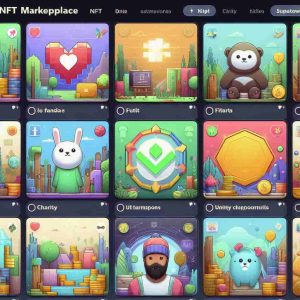Wwf
Non-fungible tokens (NFTs) have appeared as a groundbreaking innovation in the digital realm. Unlike cryptocurrencies like Bitcoin, which are interchangeable and have the same value, NFTs stand out as unique assets with individual identities and ownership records stored on a blockchain. NFT has a unique appeal, making them ideal for digital collectibles, artwork, and beyond, makes them so intriguing and exciting.
By embracing NFTs, charities can tap into a modern fundraising approach that resonates with today’s digital enthusiasts, sparking a new wave of interest and engagement.
Charities Embracing the NFT Revolution

The charitable sector is rapidly discovering the advantages of harnessing NFTs for fundraising success. Organizations worldwide are beginning to leverage these digital assets to create distinctive fundraising opportunities. Charities like the World Wildlife Fund (WWF) and the Red Cross are exploring NFTs to engage younger audiences in the digital realm and diversify their fundraising.
How to Create and Market NFTs for Charity?
Using NFTs for fundraising success involves several essential steps. Charities should begin by partnering with artists or designers to create engaging digital assets, including digital artwork, music, virtual experiences, or memorabilia. After creating NFTs, they should be minted on a platform like Ethereum for authenticity and uniqueness. Charities can promote their NFTs through social media, websites, and email newsletters, using engaging storytelling to capture donor interest.
Partnering with influencers and using NFT marketplaces can help create buzz and showcase how proceeds benefit the charity.
The Impact of NFTs on Charitable Giving
NFTs can transform charitable giving by introducing a new dimension to donor engagement and revenue generation. Their transformative potential offers donors tangible digital investments that they can own and trade. This ownership enhances the donor’s sense of involvement and commitment to the cause, paving the way for a more engaged and supportive donor base.
NFTs also provide ongoing revenue opportunities for charities through secondary sales, with a percentage of the sale going back to the original charity whenever an NFT is resold, ensuring continued support beyond the initial sale.
NFTs represent a significant advancement in the way charities can approach fundraising. By understanding NFTs, embracing their potential, and effectively creating and marketing these digital assets, charities can unlock new avenues for support. The innovative nature of NFTs captures the imagination of modern donors and offers a powerful tool for advancing charitable causes in the digital age.



